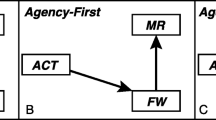Abstract
This essay evaluates John Martin Fischer and Mark Ravizza'smature semi-compatibilist account of moral responsibility, focusingon their new theory of moderate reasons-responsiveness as a model of``moral sanity.'' This theory, presented in Responsibility andControl, solves many of the problems with Fischer's earlier weakreasons-responsiveness model, such as its unwanted implication thatagents who are only erratically responsive to bizarre reasons can beresponsible for their acts. But I argue that the new model still facesseveral problems. It does not allow sufficiently for non-psychoticagents (who are largely reasons-responsive) with localized beliefsand desires incompatible with full responsibility. Nor does it take intoaccount that practical ``fragmentation of the self'' over time may alsoreduce competence, since moral sanity requires some minimum level ofnarrative unity in our plans and projects. Finally, I argue that actual-sequenceaccounts cannot adequately explain sane but weak-willed agency. This isbecause without libertarian freedom, such accounts have no way to modelthe perverse agent's determination to be irrational or weak.
Similar content being viewed by others
Author information
Authors and Affiliations
Rights and permissions
About this article
Cite this article
Davenport, J.J. Fischer and Ravizza on Moral Sanity and Weakness of Will. The Journal of Ethics 6, 235–259 (2002). https://doi.org/10.1023/A:1019531928562
Issue Date:
DOI: https://doi.org/10.1023/A:1019531928562



